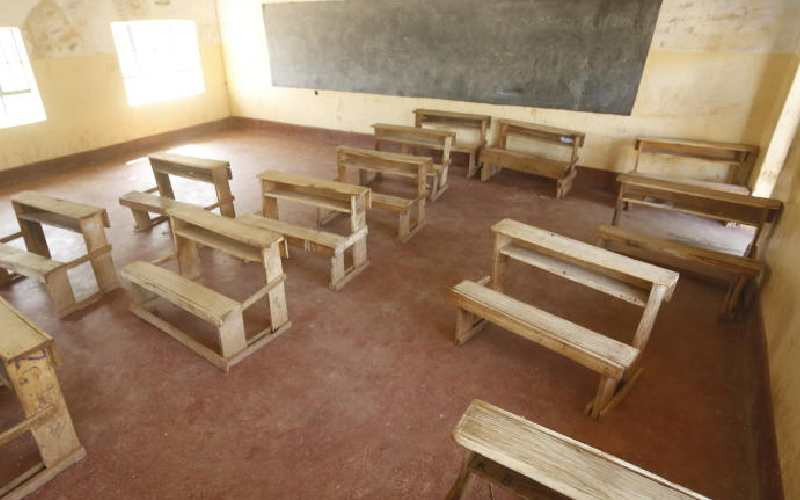×
The Standard e-Paper
Join Thousands Daily

An empty classroom at Sinoni primary school in Mochongoi, Baringo south constituency on March 6, 2022. [Kipsang Joseph, Standard]
The Presidential Working Party on Education Reforms (PWPER) has been tasked with addressing critical aspects of education reforms. Proper canvassing of relevant information will undoubtedly enable PWPER to make recommendations that will resolve problems and challenges that have dogged access to inclusive quality basic education.